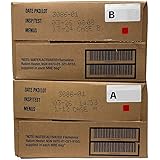Understanding Self-Reliance
What is Self-Reliance?
Self-reliance, at its core, is all about being independent and capable of taking care of yourself without relying too heavily on others. In my journey towards a more self-reliant lifestyle, I’ve come to see it as an empowering approach to life. It isn’t just about living off the land; it’s about developing skills and a mindset that allows you to navigate life’s challenges with confidence.
An essential part of self-reliance is resourcefulness. It’s about using what you have to find solutions to problems instead of feeling stuck when things go awry. For example, I’ve learned to fix minor plumbing issues instead of calling a handyman, which saves both money and a bit of my sanity!
Ultimately, self-reliance gives you greater control over your life. You start to realize that you don’t have to depend on stores or services for everything—this can even apply to things like food, health, and wellness!
Building Community Connections
The Importance of Community
While self-reliance often evokes the image of one person living in solitude, I’ve found that building strong community connections is vital. No man (or woman) is an island, right? By engaging with my local community, I am able to share resources and skills. This really proves that you can be self-reliant while still leaning on your neighbors for support.
Networking within your community opens doors to potential bartering opportunities. For instance, I might grow vegetables in my garden while my neighbor has a knack for fixing cars. We can trade our skills and get what we need without the need for money changing hands. This not only cultivates good relationships but also strengthens our self-reliance.
Being part of a community also means that when challenges arise—like a local food shortage or a power outage—we have each other to fall back on. We can band together to help one another out instead of facing things all alone.
Enhancing Home Skills
DIY Projects and Repairs
One of the most empowering aspects of becoming self-reliant is learning how to tackle home projects and repairs on my own. I can’t tell you how much money I’ve saved by picking up DIY skills over the years. Whether it’s fixing a leaky faucet or building my own furniture, I’ve turned my home into a space where I can take pride in my handiwork.
There’s a thrill in learning something new, too. I remember the first time I attempted woodworking; it wasn’t perfect, but the satisfaction of creating something with my own hands was exhilarating! Plus, every skill learned boosts my confidence and helps me become even more self-sufficient.
== > What if ... Get a FREE Subscription to PREPARE
Also, there’s a growing wealth of resources available today—everything from YouTube tutorials to community workshops. With some determination (and maybe a couple of tries), anyone can learn to handle home repairs and projects effectively!
Utilizing Technology Wisely
Smart Living Solutions
I know what you’re thinking: “How do I go off-grid with technology?” Well, it’s all about utilizing tools that assist in being self-reliant without being overly dependent on them. For instance, I frequently use apps that help me track my food supply and manage household chores efficiently.
I also take advantage of technology for learning. Online courses have opened up a wide range of possibilities for self-education in areas like permaculture, gardening, and sustainable living. Knowledge is power, and I always find something valuable to take away from these resources.
However, it’s essential to strike a balance. I limit my screen time and ensure that technology enhances my life instead of consuming it. Using technology wisely can provide support for my self-reliant journey without diverting me from the hands-on experience.
Practicing Sustainability
Adopting Eco-Friendly Practices
Being self-reliant isn’t just about looking after oneself; it’s also about being responsible toward the planet. I’ve started practicing sustainability in my lifestyle, and let me tell you, it’s both fulfilling and essential. From composting kitchen scraps to recycling and minimizing waste, every little action counts.
I’ve also begun growing my own herbs and vegetables. It’s not only cost-effective but gratifying to eat food that I have personally nurtured. Plus, I can rest easy knowing where my food comes from—there’s something nice about that connection to nature.
Remember, sustainability is a journey, not a destination. I continue learning and adapting new practices that fit my lifestyle, proving that I can be self-reliant without needing to completely disconnect from society. It’s all about finding a balance and doing what feels right for you.
Frequently Asked Questions
1. Can I really be self-reliant living in a city?
Absolutely! Self-reliance isn’t exclusive to rural living. You can cultivate skills, grow a small indoor garden, and build community connections, all while being in an urban environment.
2. What if I don’t have any handyman skills?
Everyone starts somewhere! Consider taking classes or watching instructional videos online. Practice will enhance your ability, and before you know it, you’ll be whipping up repairs with confidence.
3. Is it expensive to start being self-reliant?
You can begin virtually for free! Start small with what you already have at home, like using scrap materials for DIY tasks. As you build skills, you can invest gradually in tools or resources that support your journey.
4. How do I find community resources?
Check local community boards, social media groups, or search for workshops in your area. Many neighborhoods have community gardens or skill-share programs that can connect you with other self-reliant individuals.
5. What role does technology play in self-reliance?
Technology can be a vital ally! Use it to educate yourself, track supplies, or find local support. Just be mindful to not let it consume your time—balance is key.






